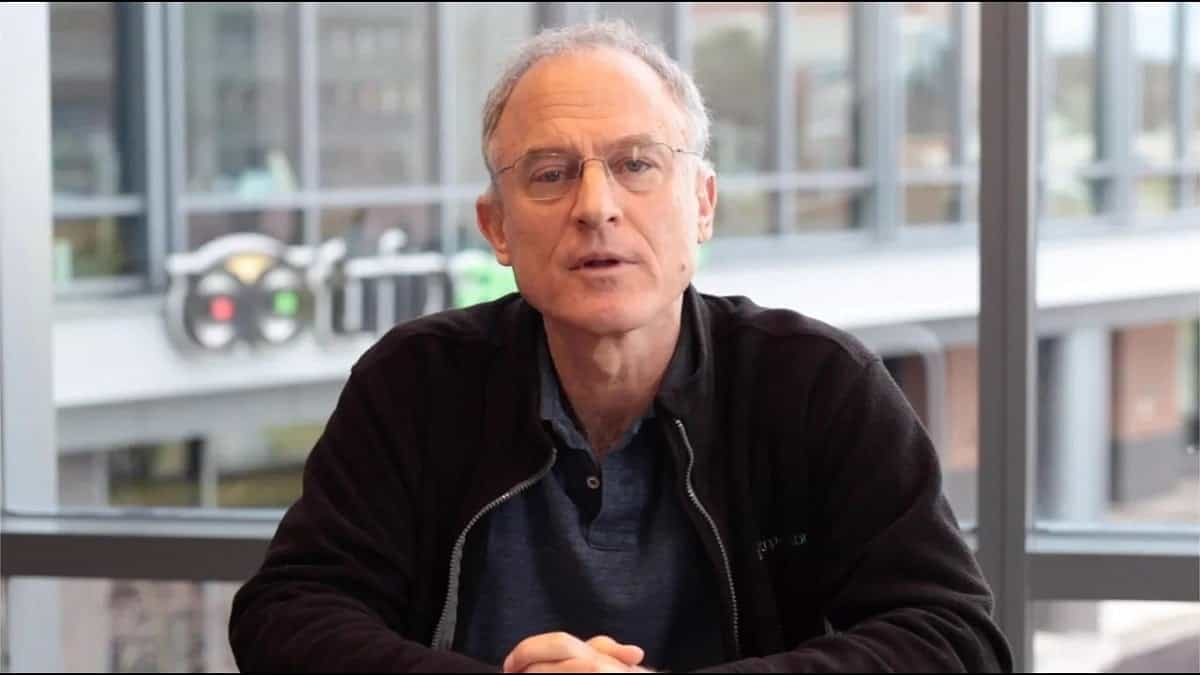Show table of content Hide table of content
In the competitive world of talent acquisition, savvy CEOs employ innovative strategies to identify top-tier candidates. One such leader, Stephen Kaufer, the visionary behind TripAdvisor, has revealed his go-to interview question that helps him separate the wheat from the chaff. This article delves into Kaufer’s unique approach and explores how it can unveil a candidate’s true potential.
The power of a single question in job interviews
Stephen Kaufer, co-founder and former CEO of TripAdvisor, has made a significant impact on the travel industry. His brainchild, launched in 2000, has become a cornerstone for travelers worldwide, generating an impressive $1.79 billion in revenue in 2023. Despite stepping down from his role in 2022, Kaufer’s influence in the business world remains strong.
During an appearance on The Logan Bartlett Show, Kaufer shared a pivotal question he uses in interviews to assess candidates: “What’s the most challenging project you’ve ever worked on?” This seemingly simple query serves as a powerful tool to evaluate a candidate’s character, work ethic, and potential fit within an organization.
The effectiveness of this question lies in its ability to reveal multiple aspects of a candidate’s personality and professional approach. It’s not just about the answer itself, but how the interviewee responds that provides valuable insights. This technique aligns with the practices of people with strong boundaries, who often demonstrate clear communication and self-awareness in their responses.
Decoding candidate responses: what CEOs look for
When analyzing responses to his signature question, Kaufer pays close attention to several key factors:
- Team spirit and collaboration
- Problem-solving abilities
- Accountability and responsibility
- Adaptability and resilience
Kaufer listens intently to how candidates describe their role within the project team. He’s particularly interested in how they handled difficulties and interacted with colleagues. A red flag for Kaufer is when a candidate points fingers at team members, as this may indicate a lack of accountability or poor teamwork skills.
“It tells me whether they sometimes take responsibility for why a task became difficult,” Kaufer explains. This insight is crucial in identifying candidates who possess high emotional intelligence, a trait highly valued in modern workplaces.
To further assess a candidate’s potential, Kaufer often follows up with another thought-provoking question: “How would you refine your most successful project?” This unexpected query aims to gauge the interviewee’s adaptability, curiosity, and continuous improvement mindset – qualities that are essential in today’s fast-paced business environment.
Beyond the resume: unveiling true potential
While resumes provide a snapshot of a candidate’s qualifications, Kaufer’s approach digs deeper to uncover the intangible qualities that truly set exceptional candidates apart. This method aligns with the habits of highly successful people, who often demonstrate a willingness to reflect on past experiences and learn from them.
By focusing on past challenges and how candidates overcame them, interviewers can gain valuable insights into:
- Problem-solving skills
- Resilience in the face of adversity
- Ability to work under pressure
- Leadership potential
- Creativity and innovation
Moreover, this approach helps identify candidates who possess extremely high standards for themselves, a trait often associated with top performers in various industries.
Implementing effective interview strategies
While Kaufer’s question is undoubtedly powerful, it’s essential to consider a holistic approach to interviewing. Here’s a table outlining additional strategies that complement Kaufer’s technique:
| Strategy | Purpose | Example Question |
|---|---|---|
| Behavioral interviewing | Assess past performance as an indicator of future behavior | “Describe a time when you had to meet a tight deadline. How did you handle it?” |
| Situational questions | Evaluate problem-solving skills in hypothetical scenarios | “How would you handle a disagreement with a colleague on a project?” |
| Skills assessment | Verify technical abilities and knowledge | “Can you walk me through your process for analyzing market trends?” |
| Cultural fit evaluation | Determine alignment with company values | “What type of work environment do you thrive in?” |
Implementing these strategies alongside Kaufer’s approach can provide a comprehensive view of a candidate’s potential. It’s crucial to create an interview environment that allows candidates to showcase their effortless confidence, as this often correlates with high performance in professional settings.
Refining your hiring process
Adopting Kaufer’s interview technique can significantly enhance your hiring process. However, it’s essential to remember that no single question can provide a complete picture of a candidate. To maximize the effectiveness of your interviews:
- Prepare thoroughly: Research the candidate’s background and tailor your questions accordingly.
- Active listening: Pay attention to both verbal and non-verbal cues during the interview.
- Follow-up questions: Dig deeper into responses to gain more comprehensive insights.
- Diverse perspectives: Involve team members in the interview process for a well-rounded evaluation.
Remember, the goal is not just to identify skilled individuals, but to find those who will thrive within your organization’s culture and contribute to its long-term success. By incorporating strategies that help candidates boost their confidence during the interview process, you’re more likely to see their true potential.
In today’s competitive job market, it’s crucial to go beyond traditional interview methods. By adopting innovative approaches like Kaufer’s, you can uncover valuable insights about candidates that may not be apparent on paper. This can lead to more informed hiring decisions and ultimately contribute to building a stronger, more cohesive team. As you refine your interview process, consider how you can incorporate questions that reveal a candidate’s problem-solving abilities, teamwork skills, and overall fit within your organization.
Ultimately, the art of interviewing is about striking a balance between assessing skills and uncovering potential. By focusing on past challenges and how candidates approached them, you can gain valuable insights into their character, work ethic, and ability to contribute to your company’s success. Remember, the right interview questions can be the key to unlocking a candidate’s true potential and finding the perfect fit for your team.


